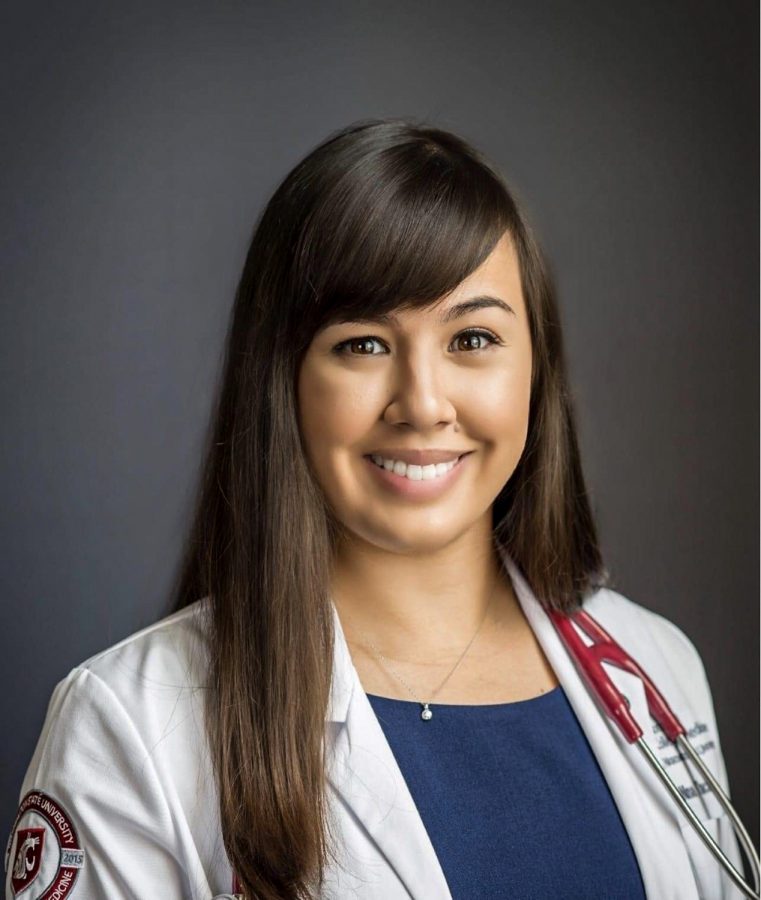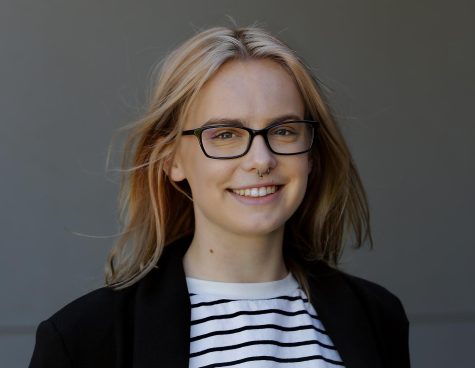WSU student hopes to honor community, bridge culture gap through medicine
Nina Thach grew up in Cambodian community in Tacoma, witnessed lack of access to health care
Nina Thach wanted to become a physician after she went to a camp in middle school where she shadowed a doctor while they treated a patient with cerebral palsy. “That moment with him kind of sparked that idea of ‘this is what I wanted to do,'” she said.
February 3, 2022
Growing up in a Cambodian community in Tacoma, Washington, Nina Thach saw firsthand the lack of access to health care. Now, a fourth-year WSU medical student, Thach has plans to become a family physician to bridge the language and culture gap and combine Western and Southeast Asian medicine.
Thach said she knew she wanted to become a physician since she was in middle school when she went to a nursing camp.
The camp gave her and other middle schoolers interested in health care the opportunity to shadow doctors and nurses to see what patient care looked like firsthand, she said.
She said she shadowed a doctor working with a patient who had cerebral palsy. While she was working alongside the doctor, the patient held his hand out to her, looking for comfort.
“I held his hand through the whole thing, and it just immediately calmed him down,” Thach said. “To be able to be a part of that moment with him kind of sparked that idea of ‘this is what I wanted to do.’”
When she was 15, Thach started volunteering at a hospital before becoming a Certified Nursing Assistant. While working as a CNA, she said she had a feeling there was much more she could do in the field.
Thach said she decided to pursue a higher position and ended up becoming a medical assistant.
When she was an undergraduate, she wanted to experience what working in the emergency room was like, so she said she became an ER scribe. Eventually, she became a medical assistant in a surgery center.
Working in those positions helped her get a firsthand experience of being a healthcare professional during good and bad situations, Thach said.
“I thought it would be amazing to continue on to be a doctor, to actually get to know my patients, to see them, to help them in the long term, rather than just being able to help in that moment in time,” she said.
Feb. 3 marks National Women Physicians Day and honors the path female doctors and physicians have created.
Thach said being a physician gives her the opportunity to represent women in the workplace, especially since she is in a field that used to be mainly male-dominated.
Thach said she wants to show her resilience and the power women have in terms of going after what they want in life.
“I want to someday inspire the younger generation, especially Southeast Asian females, to really venture out and do what [they] want to do,” she said.
Thach wants to show how goals can be attainable with mentors and inspirational people to help along the way, she said.
Her parents inspired her throughout her life, she said. Her dad is from Cambodia, and her mom is from Vietnam, and they were both immigrants.
Coming to the U.S., they had nothing and built a family from the ground up. Thach said she saw how resilient her parents were, and they put her health before their health.
She is originally from Tacoma, and not only did she want her parents to be healthy, but she has always wanted her community to be healthy.
She grew up in a huge Cambodian community, and she said she noticed health care was not a priority because of social, language and financial barriers.
“At a young age, I witnessed a lot of health disparities in terms of my community not being able to access their … primary care provider,” Thach said. “I wanted to bridge that.”
Her experience growing up inspired her to be the first doctor in her Cambodian community so she could create a bridge and bring the language and culture into the field, she said.
Thach said when deciding on medical school, she chose WSU’s Elson S. Floyd College of Medicine because she wanted to go somewhere that was going to allow her to work in different communities, towns and hospitals.
She is in her fourth and final year of medical school, and she has done rotations all over the state in cities such as Seattle, Tacoma and Vancouver, she said. She even had a rotation in Portland, Oregon.
“I’ve been able to see and experience all these different hospital systems,” she said.
Thach said when she had her white coat ceremony, an event honoring medical students, everyone was given the opportunity to write an oath to themselves. The oath was a reminder to everyone at the ceremony what their goals were and where they came from.
“I wrote a very personal oath for myself,” she said. “When I read it … it always motivates me to do better, become better, work harder.
Thach said her oath helps her remember not only is she working toward being a physician for herself, but she is doing it for her future patients as well.
A big part of her oath is a Cambodian saying, which means ‘keep studying,’ she said.
“Studying and learning is a lifelong lesson,” Thach said. “You’re always a lifelong learner.”
Thach said her ultimate goal is to become a family doctor and to be able to work within the community, learn about the people living there and support them, she said.
“One of the big things I want to push is women’s health, preventative health and advocacy, and doing a lot of bill and policymaking in terms of better care for all people, whatever barriers they may have,” she said.
Thach said she wants to be involved in different organizations that support lawmaking and policy writing, and she wants to dive into the community she is working with to learn who they are.
Emily Thorn, fourth-year medical student, said she spent her first two years with Thach at the Elson S. Floyd College of Medicine on the WSU Spokane campus.
The two were in the same cohort and went to the Vancouver campus for their last two years, Thorn said.
“She’s a wonderful person to work with,” she said. “She’s very cooperative and helps facilitate discussion and include everyone. She was really a joy to have as a classmate.”
Thorn and Thach have worked together in multiple settings, including a large class setting and small group sessions, Thorn said. When the small group sessions were finished, Thach made an illustration of everyone in the group with specific qualities she had picked up from everyone.
Outside of the classroom, Thach loves to bring people together. Thorn said when the two were in Spokane, Thach hosted dinners and game nights to unite their cohort.
When the two moved to Vancouver, Thorn said she had trouble finding housing and Thach let her stay in a spare room for a month before she could start the lease of her new home.
Thorn said this was in 2020 in the middle of the pandemic, and it was a stressful time for her, but Thach had her back during that time and made her feel supported.
The two are almost at the end of medical school and will go into residency immediately after, which is training for recent medical school graduates, Thorn said. They find out where they will be going in March.
“It would be great if we ended up close together or at the same institution,” she said. “But I’m just so excited for [Thach] regardless because she’s going to do great wherever she goes.”
*Editor’s note: This article has been updated to correct Emily Thorn’s name.










